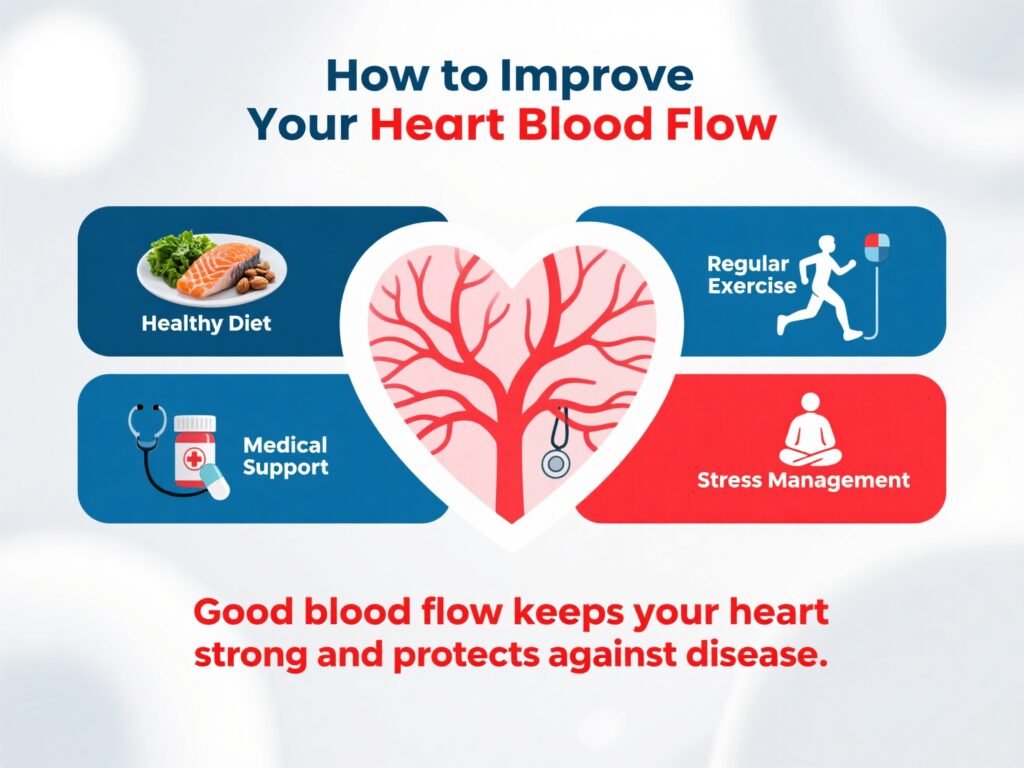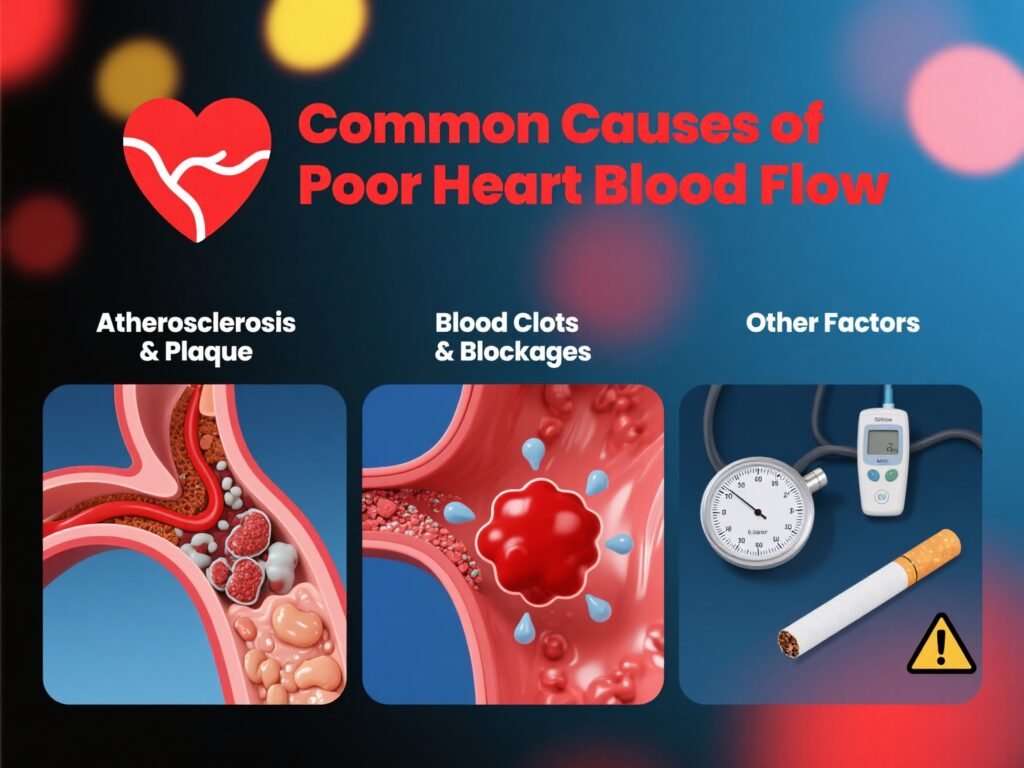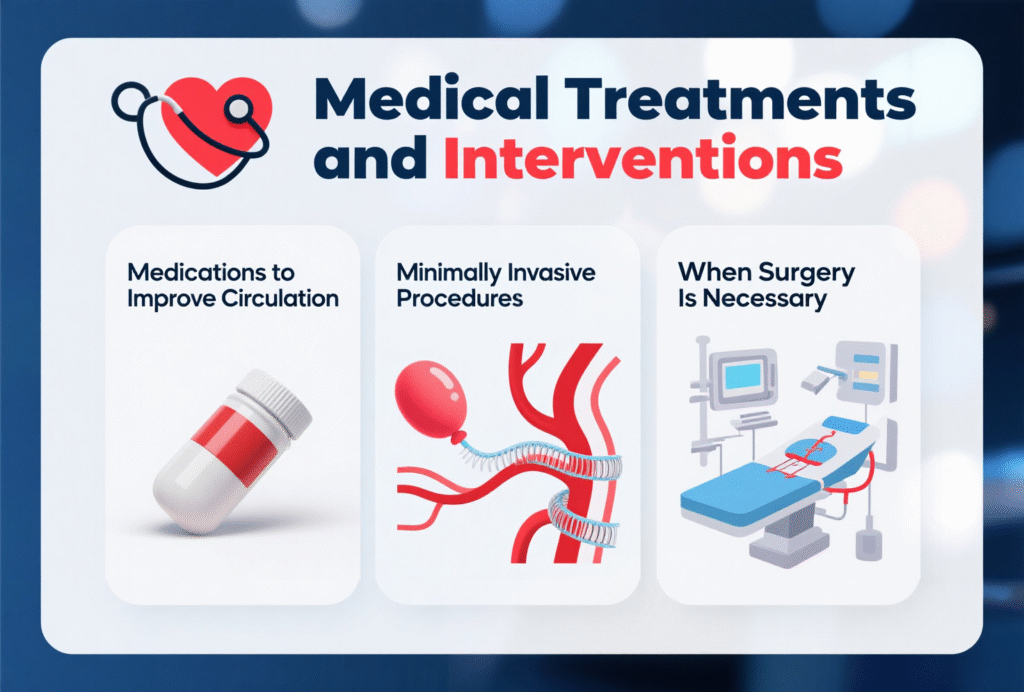How to Improve Your Heart Blood Flow

Good blood flow to the heart is essential for maintaining a healthy cardiovascular system. When your heart receives enough oxygen-rich blood, it can pump effectively and sustain your body’s needs. But when blood flow is restricted, it can lead to serious health problems, including chest pain, heart attacks, or heart failure. Understanding how to improve heart blood flow is crucial to enhancing your overall health and longevity. This comprehensive guide will walk you through everything you need to know about heart blood flow, from the basics to practical lifestyle tips and medical options.
Understanding Heart Blood Flow
Before diving into improvement strategies, it’s important to understand how blood flows to and through your heart.
What Is Coronary Circulation?
Coronary circulation refers to the movement of blood through the network of arteries and veins that supply the heart muscle itself. Your heart, like any other muscle, needs a constant supply of oxygen and nutrients to function. The coronary arteries wrap around your heart and provide this vital flow. Imagine these arteries as the highways delivering life-sustaining fuel to your heart muscle.
Why Adequate Blood Flow Is Crucial
When blood flow is adequate, your heart muscle works efficiently without strain. However, if this flow decreases, parts of the heart can become starved of oxygen, leading to symptoms like chest pain or even permanent damage. Ensuring optimal blood flow means maintaining your heart’s strength and reducing risks of complications.
Common Causes of Poor Heart Blood Flow

Several conditions can impair the flow of blood to the heart.
Atherosclerosis and Plaque Build-up
Atherosclerosis occurs when fatty deposits called plaques build up inside the arteries, narrowing them and restricting blood flow. Think of it like pipes clogging with grime — the narrower the pipe, the less fluid can pass through. Over time, this can severely limit the oxygen reaching your heart.
Blood Clots and Blockages
Sometimes plaques rupture, leading to blood clots that can block arteries suddenly. This is the main cause of heart attacks and demands immediate medical attention.
Other Contributing Factors
High blood pressure, diabetes, smoking, and sedentary lifestyles can all worsen blood flow by damaging the blood vessels or increasing plaque build-up.
Signs and Symptoms of Reduced Heart Blood Flow
Recognizing symptoms early can be lifesaving.
Chest Pain and Angina
Chest pain or discomfort, often described as pressure or squeezing, is the most classic symptom of reduced heart blood flow. This is medically termed angina and usually occurs during physical activity or stress when the heart’s oxygen demand increases.
Shortness of Breath and Fatigue
When the heart is struggling due to poor circulation, you might find yourself short of breath or unusually tired during routine activities.
Irregular Heartbeats and Palpitations
Reduced blood supply can disrupt the heart’s rhythm, causing palpitations or irregular beats that feel like fluttering in the chest.
Lifestyle Changes to Improve Heart Blood Flow
Fortunately, many lifestyle modifications can make a big difference.
Exercise: Boosting Circulation Naturally
Physical activity, especially aerobic exercise such as walking, swimming, or cycling, improves blood vessel function and encourages the growth of new small blood vessels. Regular exercise strengthens the heart muscle, enabling it to pump blood more efficiently. Even moderate activity done consistently over weeks can show significant improvements in circulation.
Example: Imagine your cardiovascular system as a garden. Exercise helps till the soil and water the plants, allowing new pathways (blood vessels) to flourish and bring nutrients everywhere they are needed.
Heart-Healthy Diet: Foods That Support Flow
A diet rich in fruits, vegetables, whole grains, nuts, and fatty fish supports healthy arteries and reduces plaque buildup. Foods high in omega-3 fatty acids, antioxidants, and fiber help lower bad cholesterol and inflammation, making it easier for blood to flow freely.
Stress Reduction Techniques
Chronic stress tightens blood vessels and raises blood pressure, limiting blood flow. Practices like meditation, deep breathing, and yoga help calm your nervous system and promote better circulation.
Medical Treatments and Interventions

Sometimes lifestyle changes alone aren’t enough.
Medications to Improve Circulation
Doctors may prescribe drugs such as statins to lower cholesterol, blood thinners to prevent clots, or medications to control blood pressure and reduce heart workload. These medications work synergistically to enhance blood flow and protect heart health.
Minimally Invasive Procedures
For significant blockages, procedures like angioplasty and stenting can open narrowed arteries. A tiny balloon is inflated inside the artery to compress plaque, and a stent (a small mesh tube) may be placed to keep the artery open.
When Surgery Is Necessary
In severe cases, coronary artery bypass graft surgery (CABG) may be required. This involves rerouting blood flow around blocked arteries using vessels taken from other parts of your body.
The Role of Regular Check-ups and Monitoring
Monitoring your heart health regularly can catch issues before they escalate. Diagnostic tests like stress tests, echocardiograms, or coronary angiography help doctors assess blood flow and tailor treatments accordingly.
How Northern Heart Hospital Can Help
Northern Heart Hospital provides expert cardiac care using advanced technology and highly experienced cardiologists. From comprehensive evaluations to cutting-edge interventions, the hospital’s multidisciplinary team is dedicated to restoring and maintaining optimal heart blood flow. You can learn more or book an appointment at nhearthospital.com.
Final Thoughts: Taking Charge of Your Heart Health
Improving your heart blood flow is achievable with informed lifestyle choices and timely medical care. Understanding how your heart works, recognizing symptoms early, and embracing a heart-healthy lifestyle can protect your cardiovascular health and enhance your quality of life.
FAQs
- What is the best exercise to improve heart blood flow?
Aerobic exercises like walking, jogging, swimming, and cycling are excellent for improving circulation and heart strength. - Can diet alone improve blood flow to the heart?
While diet plays a crucial role, combining it with exercise and stress management offers the best results. - How do stents work to improve blood flow?
Stents keep narrowed arteries open, allowing blood to flow more freely and reducing the risk of heart attacks. - When should I see a cardiologist about my heart blood flow?
If you experience symptoms like chest pain, shortness of breath, or palpitations, seek professional evaluation promptly. - Are there natural supplements that help improve blood flow?
Some supplements like omega-3 fatty acids may support heart health, but always consult a doctor before starting any new regimen.
